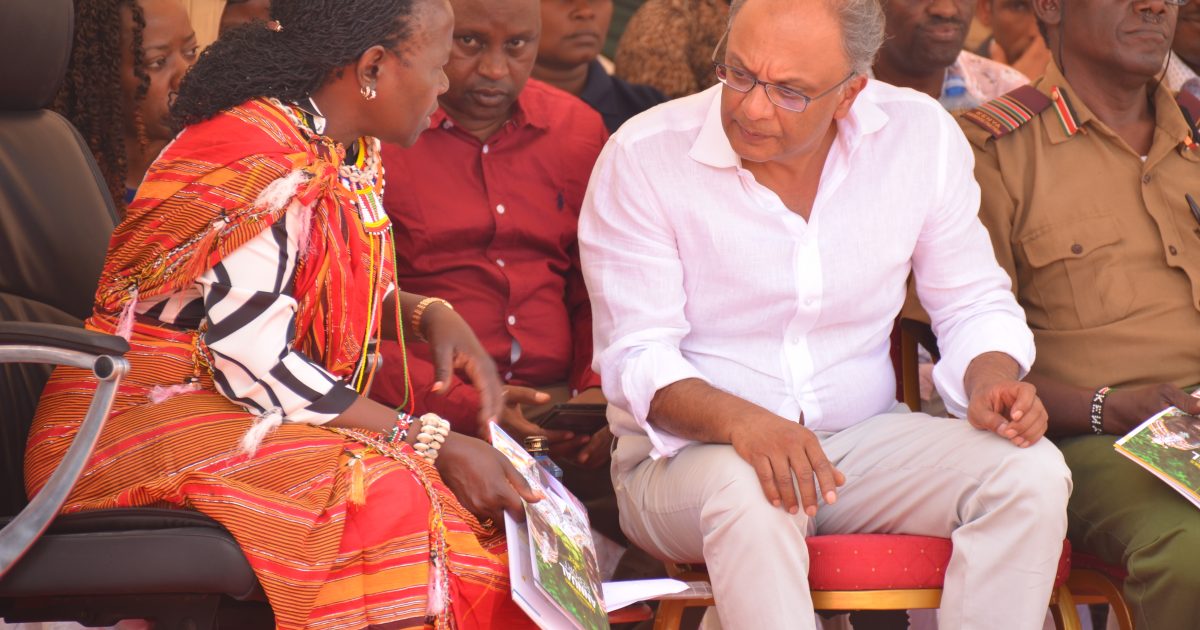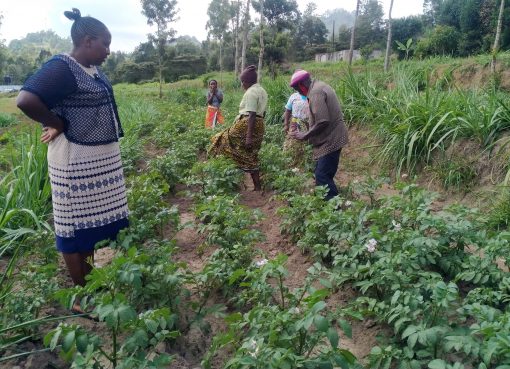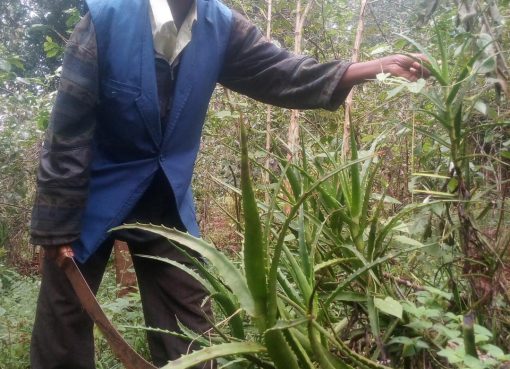At least 140 young men and women from the pastoralist communities yesterday graduated after undergoing three months of skills training through a program dubbed ‘Újuzi organized by the Northern Rangeland Trust Trading operating counties in the Northern Frontier zone.
Ujuzi Manyatani is a vocational training delivery model in Which Technical and vocational training Education institutions place trainers in villages to teach marketable skills.
By placing trainers in communities, Ujuzi Manyatani provides access to learning for people from disadvantaged socio-economic backgrounds and those who have not been able to access formal education.
It enables pastoralists to acquire practical vocational skills where other training facilities are absent, without disrupting their way of life.
Trainers and tools move across villages, conservancies, and counties to provide equal opportunities to all ethnic groups in community conservancies
The program offers several vocational courses including tailoring and dressmaking, vessel repair and maintenance, hairdressing beauty therapy, masonry, catering, plumbing, motorcycle repair, and maintenance as well as mobile phone repair.
Speaking while gracing the graduation ceremony TVET Principal Secretary Dr Esther Muoria commended the champions behind this transformative initiative led by Regional East African Community and Regional Development PS Dr Kevit Desai who is the Chairman of NRT Mashiani Works.
She said the initiative that aims at empowering the disadvantaged communities in Kenyan arid and Semi-arid areas serves as village-based mobile vocational training though they are faced with various challenges including cattle rustling, limited education opportunities, infrastructure high levels of poverty among others.
“The village-based mobile vocational training program seeks to change this narrative by eliminating these barriers. The model of training therefore will have a great impact on imparting skills to many in these remote areas,” said Dr Muoria.
In a time when technology is advancing at an unprecedented phase, she added, the global challenges require innovative suggestions such as education and training which is more crucial than ever.
“We are going to ensure that this program is put into a policy and recognized even as we link it to the national polytechnics so that we can properly certify our youth,” said Dr Muoria.
She added: “In Kenya, skills are now very important because as a government we know and we realize that skills are what we need as a country to plummet it to the next level of development.”
To fully certify the students under this program, the PS said that her department has partnered partner with national polytechnics which are qualification awarding institutions like Nyeri National Polytechnic to take them through recognition of prior learning.
After the recognition, they will be issued with certificates from the national polytechnics which are recognized by the government of Kenya as well as globally.
“We need pools of skilled young people in this country as one of the leverages to development and it doesn’t matter whether they are going to the physical classes or not,” said Dr Muoria adding that they will launch the institution and work together with the initiative to ensure that all the youth access the skills they need.
She said this will also be very helpful in the northern frontier zone where there have been some bits of criminality like cattle rustling.
“The young people are engaged in cattle rustling for lack of alternatives and this is what we are here to offer. The recipients are very excited after they get the skills and they are saying they are more than prepared to abandon the vices to come and acquire the skills to take them ahead,” she said.
She added: “I am very excited about this bottom-up initiative where we are ensuring that even that youth who has never been in a nursery school or a form one class can get the skills and we are also able to give them the equipment they need to start their own business.”
She said the department was also coming up with all the frameworks to enhance partnerships with the industries, the county, and the national governments to take advantage of projects like roads, and affordable housing so that the youth can go to all these areas and be able to do what is required of them to earn a living.
Dr Kevit Desai said that indeed, this was an inspiring initiative and an innovation within the context of providing skills to young people.
She said young women and men have benefited from the practical training that enables them to have the necessary skills by way of various courses that they were trained in.
“In a county like Isiolo that is trying to promote economic generation, skills are the crafts of its development to gain entry into future projects like Lapsset and also to gain access into existing economies within the context of the County,” said Dr Desai.
She said the initiative empowers the young people to take the first step towards better livelihoods, and gainful employment and that it was fully endorsed by the government of Kenya supported by government policy by way of competency-based education training recognition of prior learning and the partnerships with all the polytechnics and vocational institutions.
“We hope to skill this initiative to 47 conservancies over almost a million young people and therefore we are seeking support by way of creating the necessary value chains to the economy and most importantly the skills and the transmission of its capacity as far as our program is concerned,” said Dr Desai.
He said they were delighted by the support they were receiving from the county, national government, development partners, and the local private sector who are contributing greatly towards this initiative.
“This initiative enables young people who may not have opportunity or may have succumbed to a negative vice to seek a pathway into gainful employment, respect by the community, and most importantly the contribution to the efforts towards nation building,” said Dr Desai.
NRT Mashinani Works Chief Executive Officer Vishal Shal said they have so far trained about 1,150 graduates with 96 percent of them being able to set up businesses for self-employment.
“Through monitoring and evaluation, we have found out that our graduates are earning at least Sh8000 a month which in ASAL counties is double a family’s average monthly earning. So, you can see that these skills have a huge impact on the lives of young women and the youth in the ASAL regions of Kenya,” said Mr Shal.
He said they have done Ujuzi Manyatani program from Lamu, and Kiunga to Marsabit next to the border with Ethiopia, and Pokot next to the border with Uganda.
“And the unique thing about this is that it brings skills right down to the grassroots which has previously been not addressed in our country and it’s a great opportunity for our youth to join the modern economy and be able to diversify their livelihood for their future and to be part of building our great country,” said Mr Shal.
The cost of training per graduate, he added, is $1000 and so with this you can train, give them start-up kits, and includes the cost of doing such a graduation ceremony and for the trainers and assessors going to the village and staying there for three months making sure that the young people are learning what they are supposed to.
“If you consider changing somebody’s life in three months for $1000, that’s a really good investment for our donors and partners and the government of Kenya because it truly changes people’s lives,” said Mr Shal.





